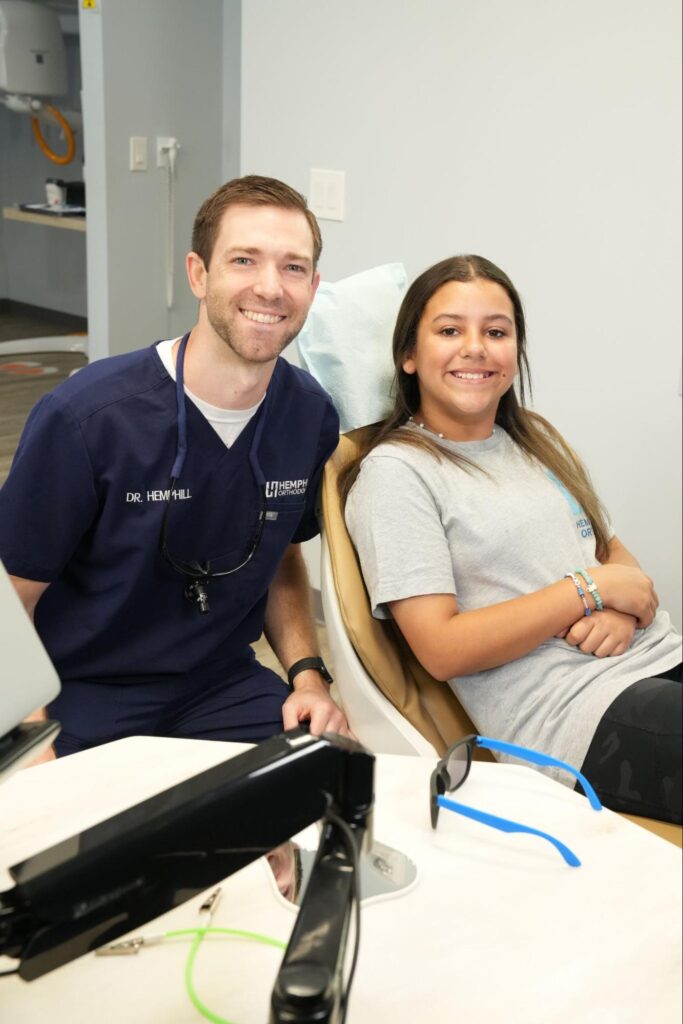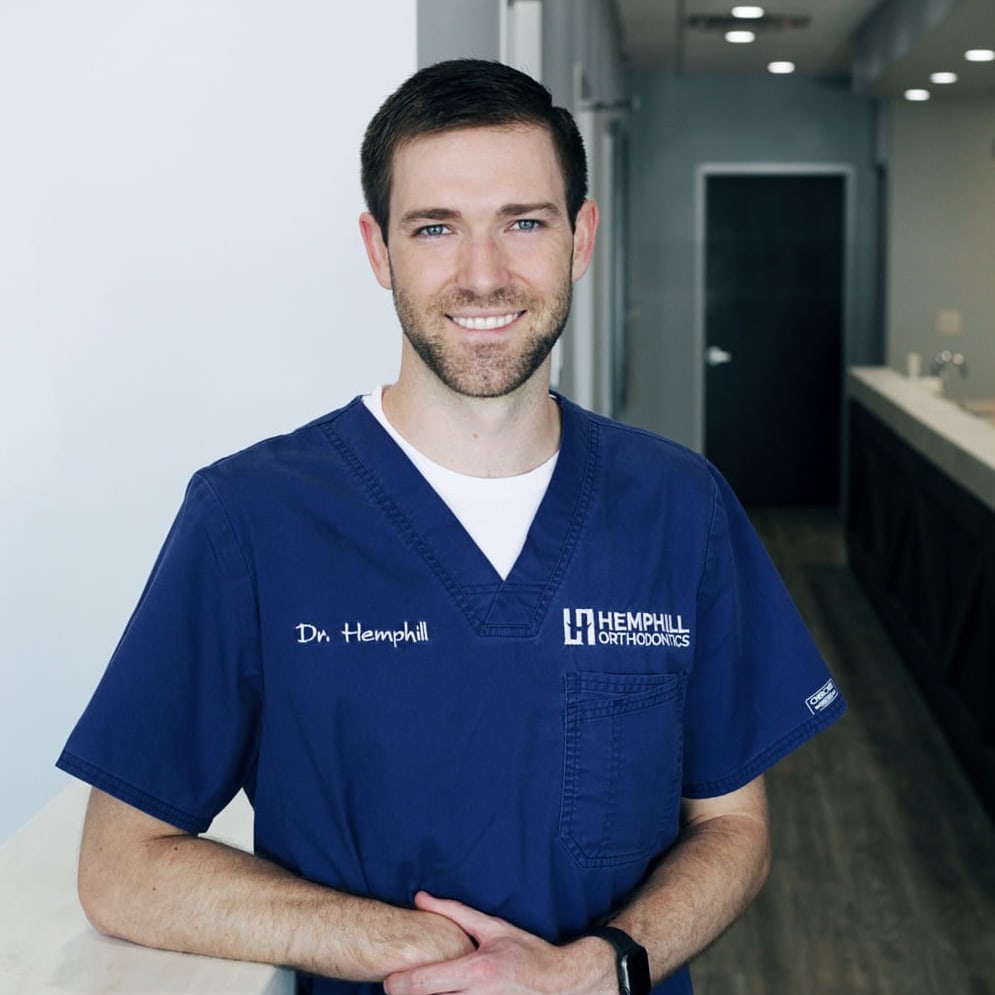Do braces hurt? That seems to be the main question that we get at Hemphill Orthodontics in Celina. And Dr. Hemphill understands that it’s a completely valid question. You came in for a free consultation, and we took some x-rays and pictures, and your teeth were examined. But then the doctor dropped the news on you, “You need braces.” Don’t think of that as bad news. Think of it as a tool you’ll use temporarily. You won’t wear braces forever. Once you get them off, you’ll be glad you had them. But do they hurt? Honestly, they can definitely cause some discomfort. Let’s examine what braces do, why they might hurt, and what you can do about it.
Why Do People Need Braces in the First Place?
You might not think that a single tooth out of position would be a big deal. But today’s little problem could become tomorrow’s big deal. Misaligned teeth can cause complications with your bite. Dr. Hemphill might refer to problems like these as “malocclusions.” He will use this word to describe how your teeth bite together when your mouth is closed.
Some examples of malocclusion include:
- Open bite: when you close your mouth, some of your teeth don’t touch
- Crowded teeth: the teeth don’t have enough space, or don’t have room to erupt
- Overbite: the top teeth overlap the bottom teeth too much
- Underbite: when you close your mouth, the lower teeth are in front of the upper teeth
- Crossbite: parts of the upper and lower teeth intersect and/or overlap

How Do Braces Fix Bad Bites?
Teeth in incorrect positions need to be pulled or pushed into correct positions. We can’t do that all at once. Tooth movement is a process that takes time. It took years for your teeth to erupt into your mouth in the places they are; therefore, the process for fixing them is also slow. Braces work by exerting force on your teeth over time. When Dr. Hemphill first applies this force, you’ll notice some tension, tightness, and pressure in your mouth. This is the beginning of your teeth being moved into new positions against their will.
Several days after first getting your braces put on, you’ll notice that discomfort going away. Depending on your treatment plan, you’ll come back into our office periodically for Dr. Hemphill and his team to adjust your braces. Each time they are tightened, you might experience some pain for a few more days. Again, this is because we’re rearranging your teeth. Eventually your teeth will be in an ideal position, and your braces can be removed.
How Long Do People Typically Wear Braces?
Similar to the question, “do braces hurt,” the answer to this one is, “It depends.” No two smiles have the same structure, so every person we treat will have a different treatment plan. But we can give you a rough estimate. Most patients wear braces for 18 to 24 months. There are some simple treatments that only last 9 to 12 months, but in more severe cases, we’ve seen patients wear braces for about three years.
What Can I Do To Keep My Braces from Hurting?
When it comes to straightening your teeth, braces get the job done. Both traditional and ceramic braces can work their magic, even if they might feel uncomfortable at first. While your teeth and gums are healing, you’ll need to take it easy. One key to helping relieve braces pain is to monitor the food you eat.
Be very selective with what kinds of foods you eat. Eating will probably be uncomfortable, so make sure you eat very soft foods. We suggest foods like:
- Mashed potatoes
- Macaroni and cheese
- Oatmeal
- Yogurt
- Scrambled eggs
- Soups
- Protein shakes
Plaque and bacteria could build up if pieces of food stay stuck too long. Nobody wants that. To keep plaque at a minimum and to facilitate cleaning your teeth, try to avoid these:
- Hard candy and foods
- Sticky candy and foods
- Popcorn
- Nuts
- Crunchy vegetables or fruit
- Ice
Other Ways to Ease Braces Pain
In addition to adjusting your diet, here are a few other methods for easing pain in your braces. Placing an icepack on the sensitive area can help, as can drinking cold water. Other patients seem to respond better to a warm salt water rinse.
Thorough massages work for sore shoulders and backs, and it turns out that they work for sore gums too. Gently (not applying too much pressure) rub your sensitive gums in a circular motion. If they’re especially tender, try using an ice cube first.
Keep up your hygiene! Brush and floss your teeth as Dr. Hemphill directs. Chances are, he will have you make some changes in your brushing regimen to help clean around your braces. Maintaining proper oral health will reduce excess food (and subsequently plaque) irritating your gums.
Always check with Dr. Hemphill first before taking any medications to help with the pain. In some cases, he may suggest an over-the-counter pain medicine. Furthermore, you could try a topical gel like Orajel. Simply rub a bit onto your gums with either your finger or a cotton swab.

Hemphill Orthodontics Will Steer You Right
Dr. Hemphill and the entire Hemphill Orthodontics team is more than happy to answer your questions about braces pain. Click here to schedule a free consultation.
 972-636-4175
Free Consult
972-636-4175
Free Consult

 Dr. Hemphill
Dr. Hemphill